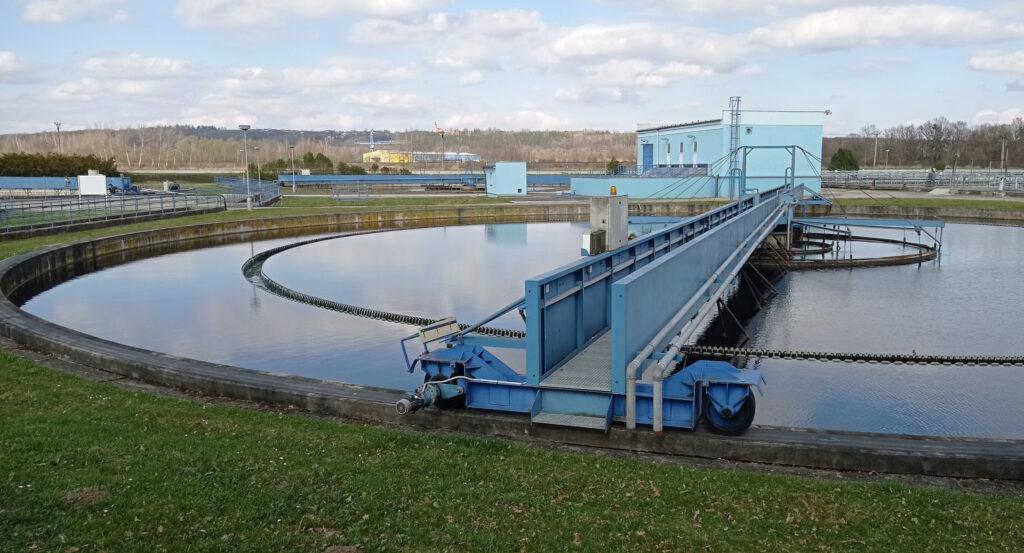Wastewater management is a critical component of modern infrastructure, ensuring that water resources are protected, public health is maintained, and the environment is preserved. Effective wastewater management becomes increasingly essential as urban populations grow and industrial activities expand. This blog will explore the importance of wastewater management, its benefits, and its role in sustainable development.
Protecting Public Health
One of the primary reasons wastewater management is crucial is its role in protecting public health. Untreated wastewater contains harmful pathogens, bacteria, viruses, and chemicals that can cause severe illnesses. Proper treatment and disposal of wastewater help prevent the spread of diseases and protect communities.
Preventing Waterborne Diseases
Effective wastewater treatment eliminates contaminants that cause waterborne diseases such as cholera, dysentery, and typhoid fever. By ensuring that wastewater is treated before being released into the environment, we can reduce the risk of these illnesses.
Safeguarding Drinking Water
Wastewater management also protects drinking water sources. Contaminated water can seep into groundwater supplies or flow into rivers and lakes, which are often used for drinking water. Proper treatment processes ensure that contaminants are removed, safeguarding the quality of drinking water.
Environmental Protection
Wastewater management plays a vital role in protecting the environment from pollution and degradation. Untreated wastewater can have severe impacts on ecosystems, aquatic life, and natural habitats.
Preventing Water Pollution
Untreated wastewater contains pollutants such as nitrogen, phosphorus, heavy metals, and toxic chemicals. When released into water bodies, these pollutants can cause eutrophication, leading to algal blooms that deplete oxygen levels and harm aquatic life. Proper treatment removes these pollutants, preventing water pollution and preserving aquatic ecosystems.
Preserving Natural Habitats
Wastewater management helps protect natural habitats by ensuring that water bodies are not contaminated with harmful substances. This protection is essential for maintaining biodiversity and supporting healthy ecosystems.
Resource Recovery and Sustainability
Modern wastewater management practices focus on resource recovery and sustainability, transforming wastewater from a waste product into a valuable resource.
Water Reuse
Treated wastewater can be reused for various purposes, including agricultural irrigation, industrial processes, and landscape irrigation. This practice reduces the demand for fresh water and promotes sustainable water use.
Energy Production
Wastewater treatment plants can produce energy through the anaerobic digestion of organic matter, generating biogas that can be used to power the facility or supply the local grid. This process reduces reliance on fossil fuels and supports renewable energy initiatives.
Nutrient Recovery
Wastewater contains valuable nutrients such as nitrogen and phosphorus, which can be recovered and used as fertilizers in agriculture. This nutrient recovery process reduces the need for synthetic fertilizers and supports sustainable farming practices.
Economic Benefits
Effective wastewater management provides significant economic benefits by reducing costs associated with waterborne diseases, environmental cleanup, and resource depletion.
Reducing Healthcare Costs
By preventing waterborne diseases, wastewater management reduces healthcare costs associated with treating these illnesses. Healthy communities are also more productive, contributing to economic growth and development.
Lowering Environmental Cleanup Costs
Proper wastewater treatment prevents water pollution and reduces the need for expensive environmental cleanup efforts. Protecting natural resources helps maintain the economic value of ecosystems, which provide essential services such as tourism, fishing, and recreation.
Supporting Industrial and Agricultural Activities
Reliable wastewater treatment supports industrial and agricultural activities by providing a sustainable source of water and nutrients. This support is crucial for economic development and the sustainability of these sectors.
Regulatory Compliance
Wastewater management is essential for complying with environmental regulations and standards set by government agencies. Non-compliance can result in legal penalties, fines, and damage to a company’s reputation.
Meeting Regulatory Standards
Wastewater treatment facilities must meet strict regulatory standards for effluent quality to protect public health and the environment. Compliance with these standards ensures that treated wastewater is safe for discharge or reuse.
Avoiding Legal Penalties
Failure to comply with wastewater regulations can result in legal penalties and fines. Effective wastewater management helps organizations avoid these consequences and maintain a positive reputation.
Conclusion
Wastewater management is crucial for protecting public health, preserving the environment, promoting sustainability, and providing economic benefits. As the demand for water resources continues to grow, effective wastewater treatment and management practices are essential for ensuring a safe and sustainable future. By investing in modern wastewater management systems and practices, we can safeguard our water resources, support healthy communities, and contribute to the overall well-being of our planet.
Apart from this, if you are interested to know more about rose water on face then visit our HEALTH category

